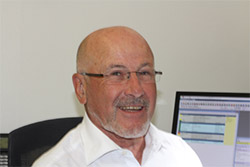KMC – Supporting patients
With Capital & Coast District Health Board, the medical centre has been running a special programme to help their patients with diabetes stay well and out of hospital. The programme, which is largely led by nurses, has had some outstanding results.
A patient’s HbA1c level shows their average level of blood sugar and is a useful way to tell how well their diabetes is being managed.
A group of 55 patients at the Karori Medical Centre who had the most severe disease were followed for 15 months to see how much they would improve with intensive management. The centre found that from their highest ever reading, nearly 80% improved their HbA1c significantly, and of those, nearly half achieved that in the 15-month study period. The better or nearer normal a patient’s HbA1c and blood pressure, the less likely they are to get conditions such as kidney disease, diabetes-related eye problems, nerve damage or erectile dysfunction.
Hospital admissions of Karori Medical Centre patients with diabetes have also reduced.
‘We looked very carefully at our patients who have the highest blood sugar levels, to work out how best to help them manage their diabetes,’ says GP Dr Peter Moodie.
‘Some people have real difficulty sticking to their medication because they often have other things going on in their lives – such as other sicknesses or social and family issues. Some don’t fully understand the seriousness of their disease. So you have to address those things, and treat the whole person rather than just their disease. We haven’t really worked this way before, and it’s making a difference.’
Patients were contacted frequently by phone, text or email to be sure they came in for assessment and to discuss their medication and diet. As diabetes is so strongly influenced by diet, the centre arranged for a nutritionist to give a series of talks for patients on eating to help control diabetes.
Practice nurses worked with patients to reduce their blood sugar levels – with valuable input from a hospital-based specialist diabetes nurse who would visit the practice to provide training and support.
Thanks to this training, some Karori Medical Centre practice nurses are now able to start patients on insulin for the first time, whereas previously, patients would have had to go to Wellington Hospital.
Because of the link between type 2 diabetes and CVD, the practice has also been offering higher-risk patients free cardiovascular risk assessments – even calling them at home in the evenings when necessary. These patients are given education about reducing their heart disease and diabetes risk and are free to call the centre for advice at any time.
Dr Moodie says the success of the project was undoubtedly due to having doctors, practice nurses and the specialist diabetes nurse working together.



